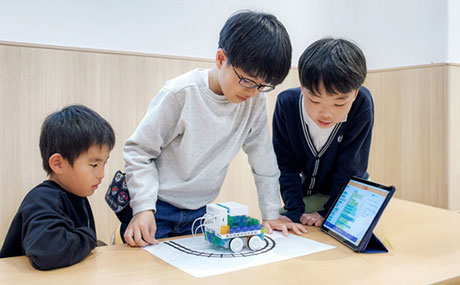About School
- Our goals and values
What we aim for
Our goal with this school is to foster children’s innovative intelligence and sensibility, and to develop human resources (※) who can contribute to social innovation and development.
What kind of people can contribute to social innovation and development?
In order to be essential to society, we dedicate ourselves, with high aspirations and pride as educators, to the development of future leaders who will be able to contribute to social innovation and progress.
–From Z-kai Group’s “Group Vision”
We believe that in the coming age, children who have innovative intelligence and sensibility, and can be inventive “for others,” can contribute to social innovation and development.
To achieve this, we aim to nurture the following children from the age of 1 to 12.
- Children who are independent and self-reliant as a base for being inventive
- Children who have their own purpose for being inventive (for themselves, for others, for the environment).
- Children who have likes, interests, and curiosity as their trigger for being inventive.
- Children who have a spirit of inquiry, can use their hands, and can conduct trial and error as a skill for invention
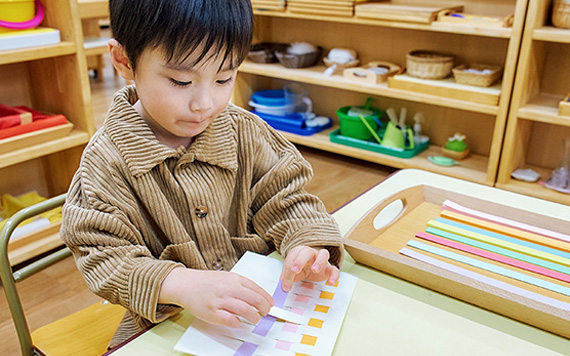
What we value
In order to nurture children’s innovative intelligence and sensibility, and to develop human resources who can contribute to social innovation and development, what we value is a ”child-centered” philosophy.
Toyota Woven City also promotes itself as a “human-centered” city, and the Montessori education that forms the basis of the school’s education also places importance on child-centeredness.
Rather than forcing children to conform to adults’ convenience, time constraints, or environmental conveniences, the school places children at the center of everything it does, and demonstrates, invents, and embodies the “excellence in education”.
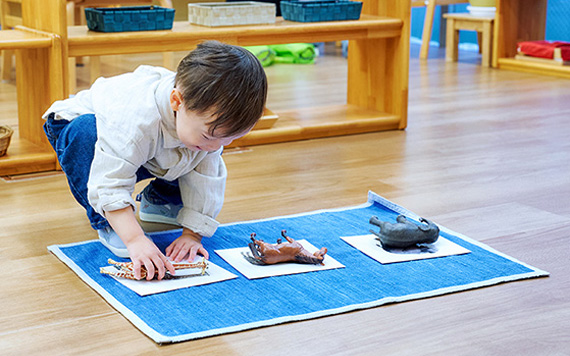
We believe that by respecting each child’s individuality through child-centered personnel, child-centered environmental settings, child-centered educational content, and by providing opportunities for encounters with people, environments, objects, and experiences that are appropriate for the child and their stage in life, as well as providing the time and environment to fully immerse themselves, concentrate, and explore, we can foster innovative intelligence and sensibilities.
One manifestation of this is the plan to have mixed-age classes.
We will prepare an environment where all of the following are recognized as “child-centered”: speed, depth, and breadth.
Our vision on child development
Using the Montessori Method as our base,
we view children’s development up to the age of 12 in the following stages.
1~2 year olds
Learning through movement
Movements of all kinds, big and small, helps children react to the environment around them. This will develop a feeling of independence and autonomy culminating in a “I want to try it myself”attitude. Successes and satisfaction will be gained resulting in higher self-confidence and self-esteem.
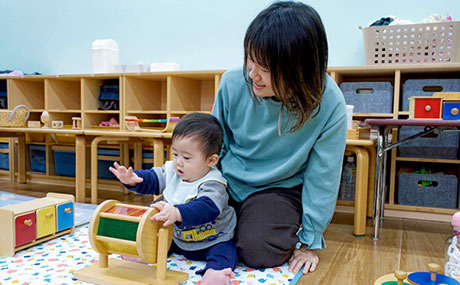
3~6 year olds
Becoming self-sufficient
Up to the age of three, children are able to organise and internalise their impressions and experiences. They purposely engage with things that interest them and use their intelligence to think, compare, recognise and summarise. Knowledge acquisition, concentration development, determination and self-control developments are all evident.
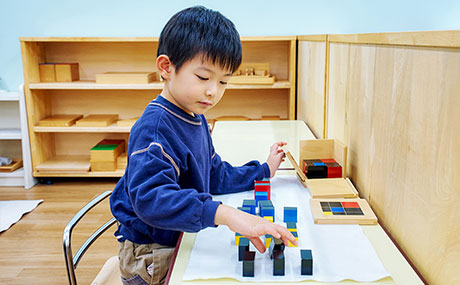
7~8year olds
Thinking for oneself
Curiosity of things in the world are heightened like wanting to know “Why the sky is blue” and “Why people have different skin colours”. They also develop their own thoughts, based on personal experiences and the difference between right and wrong.
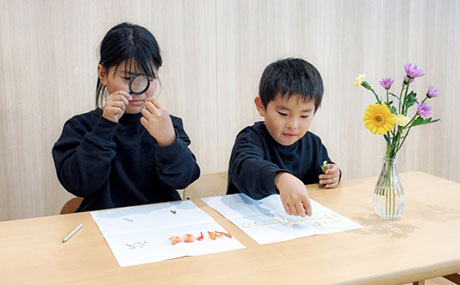
9~10 year olds
Asking deeper questions
Children recognising things with their own eyes is something they have become used to, but now analysis through a broader perspective of life comes into play. This is also a stage where they compare themselves to others and how relationships can make them feel raised-up or insecure.
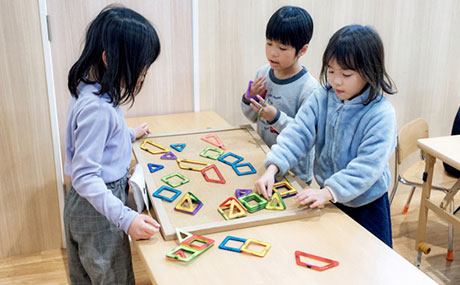
11~12 year olds
Asking questions and putting them into practice
Abstract thinking skills will improve alongside their imagination for things they can’t see. Learning about hierarchies amongst peers, their role and the formation of “organisations”is also prevalent.
